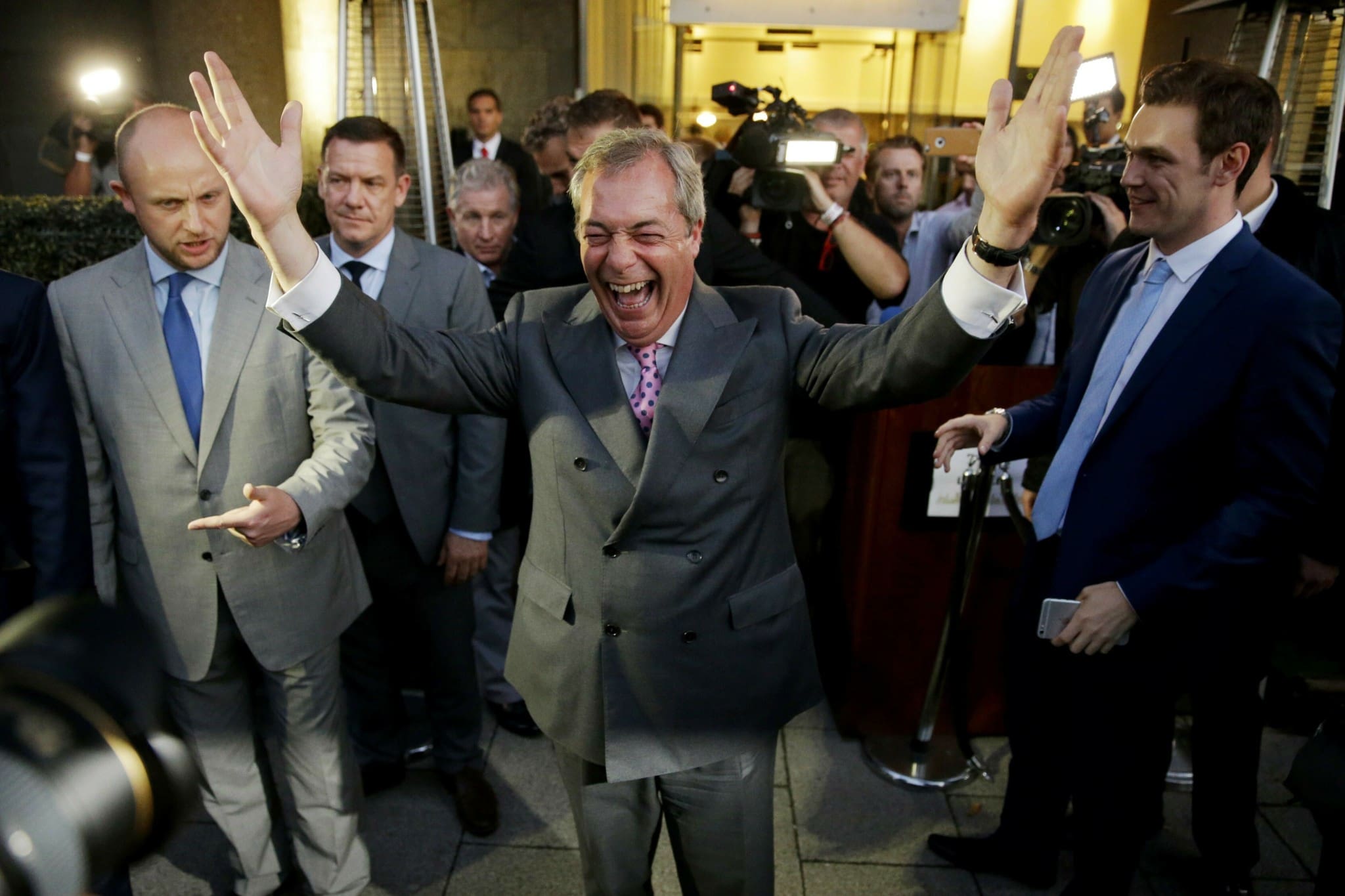The country didn’t want him, his party members didn’t want him, and now, an increasing number of parliamentarians within the U.K.’s governing Conservative Party are growing disillusioned with Rishi Sunak’s predictably hopeless tenure in Downing Street.
With reports of donors, political strategists, and lawmakers plotting how to oust the unelected prime minister over bowls of Tortellini and a bottle or three of Chianti in Covent Garden this weekend, it’s safe to say his days are numbered.
These crisis talks, I’m told, have been taking place for some time, but are now gathering momentum in light of recent developments, not least the sacking of former Home Secretary Suella Braverman, the resignation of Immigration Minister Robert Jenrick, and the botched asylum deal with Rwanda.
With each newly published poll predicting even greater electoral oblivion for the party than the last, the Conservatives are on the precipice and face a long stint in the political wilderness with no guarantee of a return to power.
As Conservative MP Andrea Jenkyns told me last month, the party is “running out of time” to remove Sunak and needs to “bite the bullet” or face the electoral consequences.
[pp id=99801]
And many grassroots conservatives believe the party’s demise to be both entirely self-inflicted and deserved.
Perhaps a consequence of the U.K.’s first-past-the-post electoral system sapping any enthusiasm for politicians to break out of the safety net afforded to them by the two mainstream parties, the Conservative Party is a broad church and a political behemoth that has proven itself to be ineffective, sluggish, and incapable of serving the vast majority of conservative-leaning voters who support the party at the polling station purely because there is no genuine alternative.
It has a proven track record of talking tough and promising the earth, only to fail to deliver time and time again as disparate factions within the party squabble amongst themselves and thwart the implementation of policy considered to be in any way radical, such as the seemingly outrageous idea of effectively controlling Britain’s borders.
The Conservative government is now at the point where it is hailing plans to reduce net migration by around 300,000 a year as something of a triumph when such a figure in itself would have been a record just a few years ago.
[pp id=77128]
A brief window of opportunity presented itself back in 2019 when, under the charismatic, infectious leadership of Boris Johnson, the party won a landslide electoral victory and was rewarded for its promise to “get Brexit done” with an 80-seat parliamentary majority.
However, in typical fashion, the party reverted to type and let the country down.
Many Brexiteers would claim that Brexit never truly “got done” — see Northern Ireland — and seemingly endless pledges to reduce sky-high immigration into Britain have not just been missed but completely disregarded. Furthermore, the tone-deaf commitment to unpopular net zero policies has done nothing to prove to the British electorate that the Conservative Party is in any way on its side, and attempts to address the concerns of right-leaning voters are now too little, far too late.
Its ability to make Sir Keir Starmer’s Labour Party look somewhat electable is frankly commendable.
Again, following Johnson’s demise, the Conservative membership sent another message to the party establishment with its endorsement of Liz Truss’ desire to pursue a Thatcherite economic agenda, a project that lasted just six weeks before the shortest-serving prime minister felt compelled to resign and later accused Britain’s “powerful economic establishment” and internal Conservative Party opposition of facilitating her demise.
The Western world has in recent years pushed ahead with progressive, globalist policies, and both Britain’s mainstream parties have veered so far towards what the establishment considers to be socially acceptable and “palatable” liberalism that many ordinary Brits no longer consider themselves to be represented politically.
Having worked on the Brexit referendum, I engaged with politicians on the left of the political spectrum such as George Galloway and Kate Hoey, and those on the right including Nigel Farage.
It became quite clear that most people in support of the Brexit cause did not care about party politics. The very premise is archaic, unattractive, and pretty nauseating to much of the electorate to hear a politician pledge their blind allegiance to a rosette for the sake of it.
Voters may not always agree with them, but they respect politicians with conviction, politicians who believe in something not because it is left or right, but because they believe it is the right thing to do.
Even if the disillusioned Conservative Party faithful get their wish and send Rishi Sunak packing — something on which the odds will shorten greatly in the coming days with the news that influential right-wing backbenchers have ruled his Rwanda asylum deal to be insufficient — a fifth leader in as many years will do little to address the deep-rooted issues within a party that consistently fails to live up to its promises.
Fresh from his expedition in the Australian jungle and with reported earnings of £1.5 million in his bank account — assuming he’s still got one — many in Britain will be hoping that Nigel Farage will seize the opportunity to turn the screw on the perennial disappointment that is the U.K.’s governing party in any forthcoming election.
Many conservatives look to electoral successes in Europe with envy as Viktor Orbán unapologetically pursues a genuinely conservative agenda in Hungary, Giorgia Meloni attempts to return Italy to its conservative roots, and most recently Geert Wilders’ political earthquake in the Netherlands threatens to upset the Dutch establishment. Some are wondering who they can turn to for a similar voice in Britain.
Farage’s appearance on the hit TV show “I’m A Celebrity: Get Me Out Of Here” has vastly increased his exposure to the mainstream and enabled the conservative broadcaster — who insists he has retired from frontline politics but has made several returns to the coalface in his time — to reach a mass audience.
He has arguably never had a better time in the past two decades to further cement himself as one of the most influential politicians of his generation and inflict another hammer blow on an ailing Conservative Party establishment.
Farage forced a referendum on Britain’s membership of the European Union after leading the U.K. Independence Party in the 2015 general election, a party that was pilloried and demonized by the mainstream media because of its threat to the political landscape.
He further showed his electoral prowess by leading his pop-up Brexit Party, which had only been in existence for a matter of weeks before the vote, to victory in the U.K.’s last European Parliamentary elections, before co-founding the Reform Party, which currently sits at its highest-ever polling result of 11 percent despite the rather underwhelming stewardship of Richard Tice.
That may sound harsh on Tice, but it’s hard to believe that, with the disillusionment and rising sense of anger and despair aimed at the Conservative parliamentary party by conservative-leaning voters, any right-wing alternative with sufficient resources couldn’t attract one in ten voters at the moment.
To put it into context, Farage’s UKIP — which had considerably more baggage and had provided the mainstream media with far more ammunition to chastise the party with over the years — hit highs of 18 percent ahead of the 2015 general election, and that was at a time when net migration was less than half what it is now and parliamentarians hadn’t attempted to water down the largest-ever democratic mandate in British history, Brexit, further eroding the social contract between voters and elected politicians.
It’s unlikely to ever happen — primarily because the liberals in the Conservative parliamentary party would never allow him to progress to a vote of the membership — but just think of the earthquake Farage could cause as leader of one of Britain’s mainstream parties.
Many would settle for another attempt at leading an insurgent party into the next election, even if it splits the vote and results in a Labour Party victory — an outcome that is almost certainly a shoo-in regardless. A few years of hurt and a hard reset could be what is required to rejuvenate conservatism in Britain.
I’m told some of the Conservatives’ largest donors still with a remnant of devotion to the party have held discussions in an attempt to bring Farage back into the party — no doubt aware that he could not only be a major asset to win back socially conservative voters, but that he also represents the greatest existential threat to the party should he choose to return to the frontline and give the electorate the opportunity to hold the Conservatives to account at the ballot box.
As it stands, there is an almighty chasm within the U.K.’s political landscape for a genuinely conservative political party that is led by someone with charisma and vigor. If the Reform Party is to be the vehicle to offer voters an alternative at the next election, there is no one better suited to lead the charge than Farage.






